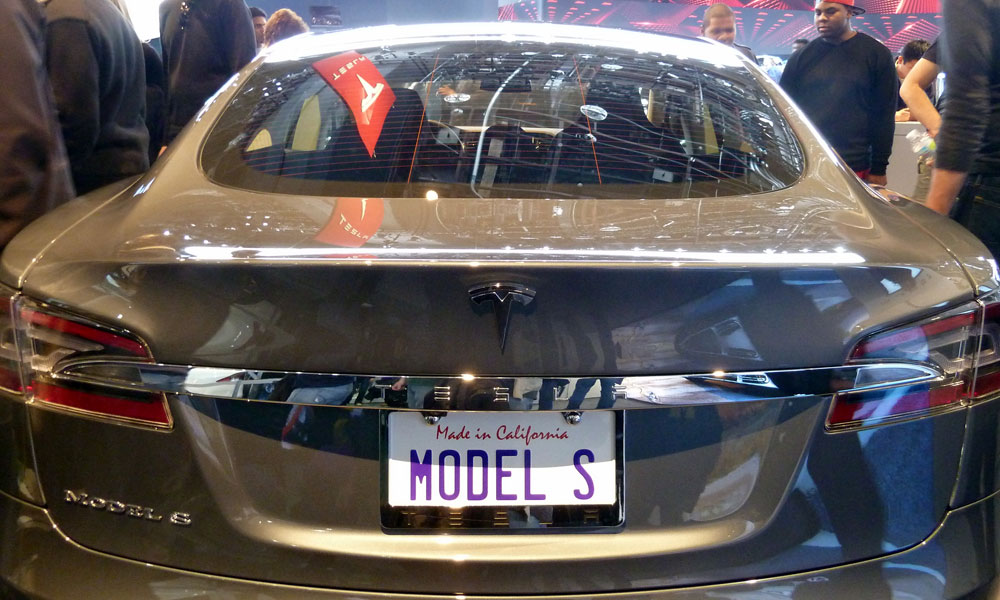
Tesla, Auto Dealers Still Tangling Over Direct Sales
Tesla Motors, which sells its electric vehicles directly to consumers despite laws against it some states, says that working within the dealership model would hurt the company's potential for success. And auto-dealers groups say that they're getting a bad rap in the ongoing fight.
To say this is a charged battle is putting it lightly.
Auto dealers have been fighting Tesla and its CEO, Elon Musk, over the electric car company’s direct sales—and getting black eyes in the press in the process—for years now.
But a flare-up of the issue in New Jersey, where a state agency ruled last week that the company was violating state law by selling directly to consumers, is drawing new attention to the dispute.
And that’s leading to some barbed comments by the parties. Here’s an example:
“If you’re an internet billionaire, maybe you think the world revolves around you, and the world springs from your laptop. Well, I got news for him,” New Jersey Coalition of Automobile Retailers President Jim Appleton told The Verge. “This is not a new law, Tesla is operating illegally, and as of April 1st, they will be out of business unless they decide to open a franchise.”
Here’s a quick breakdown of where the two sides stand:
Tesla’s take: In response to the New Jersey Motor Vehicle Commission’s ruling last week, Musk defended his company’s decision not to use the dealer system, writing in a blog post that “the auto dealers have a fundamental conflict of interest between promoting gasoline cars, which constitute virtually all of their revenue, and electric cars, which constitute virtually none.” As Tesla cars require less service than traditional gasoline-fueled cars and many problems can be fixed with over-the-air software updates, he argues, the vehicles also threaten the dealership industry’s business models, which rely heavily on service centers. This, he says, goes against the company’s mission. “I have made it a principle within Tesla that we should never attempt to make servicing a profit center,” Musk wrote. “It does not seem right to me that companies try to make a profit off customers when their product breaks.” Tesla says it may go to court over the New Jersey law but notes that for now its stores in the state will become galleries for its cars, which can still be purchased online.
The dealers’ defense: In a Washington Post letter to the editor, National Automobile Dealers Association President Peter Welch argued that Tesla’s approach is bad for consumers because it prevents competition on price and would promote monopolistic practices by auto companies. “Cutting out dealers would not lower car prices; a factory-owned retail network requires the same investment in physical assets and the same operating expenses that dealers now shoulder,” Welch wrote. “However, taking dealers out of the mix would have a negative effect. Automakers have an economic disincentive to issue recalls or incur warranty expenses. Dealers earn money by performing safety and warranty work and, therefore, are always on the customer’s side.” He said dealers play a competitive role by handling trade-ins, selling used vehicles, and focusing on servicing.
But Musk said the dealership system limits competition by preventing new companies from gaining a foothold on the market. The last automaker to do that successfully was Chrysler, he argued.
“Since the founding of Chrysler, there have been dozens of failures, Tucker and DeLorean being simply the most well-known,” he wrote in his blog post. “In recent years, electric car startups, such as Fisker, Coda, and many others, attempted to use auto dealers and all failed.”
The controversy extends far beyond New Jersey: The high-flying Tesla faces more challenges at the state level, including in Ohio and New York.
(photo by GabboT/Flickr)






Comments